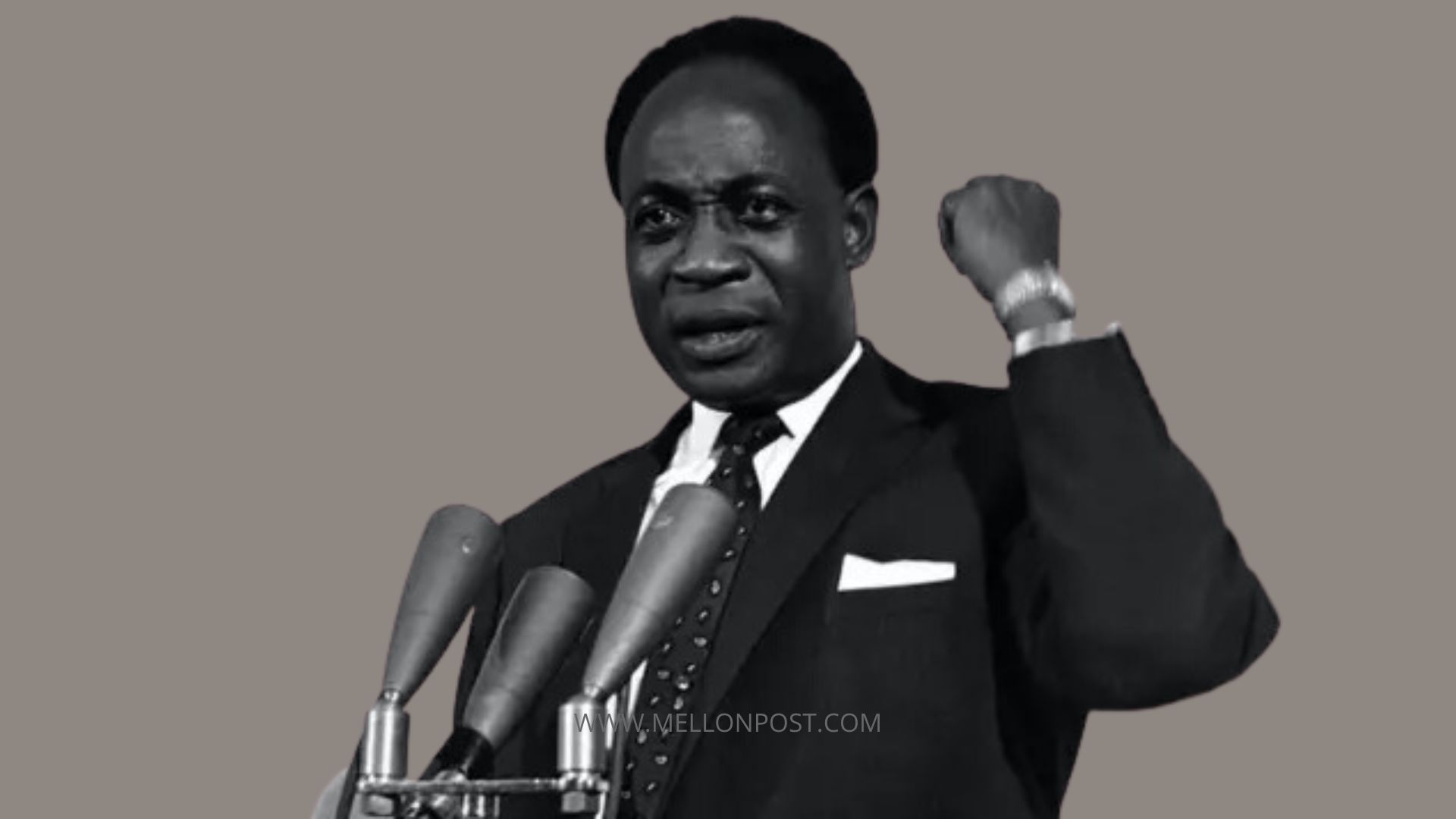
Kwame Nkrumah Biography
Kwame Nkrumah (1909-1972) was a Ghanaian politician, activist, and the first President of Ghana, the first African country to gain independence from colonial rule.
Nkrumah was a significant figure in the Pan-African movement and played a crucial role in promoting the idea of unity among African nations. His legacy is complex, marked by his vision for a unified Africa, his efforts toward modernization, and his eventual downfall due to authoritarianism.
Early Life and Education
Kwame Nkrumah was born on September 21, 1909, in Nkroful, in the Western Region of the Gold Coast (now Ghana). He was the son of a cocoa farmer and had a modest upbringing. Nkrumah attended local schools and later went to the United States to further his education. He enrolled at Lincoln University** in Pennsylvania, where he studied sociology and philosophy, and became involved in various student organizations advocating for civil rights and anti-colonialism.
During his time in the U.S., Nkrumah was influenced by prominent African-American intellectuals and activists, including W.E.B. Du Bois and Marcus Garvey. His experiences in the U.S. deepened his commitment to the struggle for independence in Africa.
Political Activism and Return to the Gold Coast
After completing his education, Nkrumah returned to the Gold Coast in 1947. He quickly became active in the nationalist movement, joining the United Gold Coast Convention (UGCC), a political party advocating for self-government. However, he soon fell out with the UGCC leadership over its moderate approach and founded the Convention People’s Party (CPP) in 1949, which aimed for immediate independence.
Nkrumah organized mass rallies and mobilized public support for independence, utilizing effective propaganda and grassroots activism. His leadership and charisma attracted a large following, and he became a symbol of hope for many Ghanaians.
Road to Independence
Nkrumah’s political activities led to his arrest in 1950 for organizing protests against British colonial rule. His imprisonment sparked public outrage and further strengthened support for the CPP. Following his release, Nkrumah was elected to the Legislative Council in 1951.
As the leader of the CPP, he negotiated with the British for greater autonomy, and in March 1952, he became the Prime Minister of the Gold Coast. On March 6, 1957, Ghana became the first African nation to gain independence, with Nkrumah as its first Prime Minister. He famously proclaimed, “The independence of Ghana is meaningless unless it is linked up with the total liberation of Africa.”
Vision of Pan-Africanism
Nkrumah was a staunch advocate for Pan-Africanism, believing that African nations should unite to achieve political, economic, and social independence. He played a crucial role in the formation of the Organization of African Unity (OAU) in 1963, which aimed to promote unity and cooperation among African nations.
Nkrumah’s vision extended beyond Ghana, as he supported liberation movements across Africa. He provided assistance to anti-colonial groups and sought to foster solidarity among newly independent African states.
Domestic Policies and Challenges
As Prime Minister, Nkrumah implemented ambitious social and economic reforms. He focused on industrialization, infrastructure development, and education. The government nationalized key industries and invested heavily in projects such as the Akosombo Dam, which generated hydroelectric power for the country.
However, Nkrumah’s leadership faced significant challenges. Economic difficulties, rising discontent, and political opposition began to emerge. He increasingly resorted to authoritarian measures, suppressing dissent and curtailing civil liberties. Opposition parties were banned, and critics faced imprisonment.
Shift to Presidency and Decline
In 1960, Nkrumah declared Ghana a republic and assumed the presidency. His government continued to face economic challenges, including inflation and unemployment, which fueled public discontent. Corruption and mismanagement within the government further eroded support for Nkrumah.
Nkrumah’s focus on Pan-Africanism often led to tensions with other African leaders. He advocated for a united Africa but faced opposition from leaders who prioritized their national interests. As regional conflicts arose, Nkrumah’s foreign policy became increasingly strained.
Overthrow and Exile
In 1966, while Nkrumah was on a state visit to China, a military coup led by the National Liberation Council overthrew his government. The coup was met with widespread popular support, reflecting growing disillusionment with Nkrumah’s rule. Upon learning of his ousting, Nkrumah lived in exile in Guinea, where he continued to advocate for Pan-Africanism and the liberation of African nations.
Later Years and Death
Nkrumah spent the remaining years of his life in Guinea, where he held the title of honorary co-president. He continued to write and promote his ideas on African unity and socialism. His health declined, and he eventually returned to Cairo for treatment. He died on April 27, 1972, in Bucharest, Romania.
Legacy
Kwame Nkrumah is remembered as a visionary leader who played a pivotal role in the struggle for independence and the promotion of Pan-Africanism. His contributions to the decolonization of Africa and the establishment of a unified continent have left a lasting impact on the continent’s political landscape.
However, his legacy is also marked by the challenges of his leadership style, including authoritarianism and economic difficulties during his presidency. Nkrumah’s complex legacy continues to evoke debate among historians and political analysts, reflecting the tensions between idealism and the realities of governance in post-colonial Africa.
In Ghana, Nkrumah is celebrated as a national hero, and his birthday, September 21, is observed as Founder’s Day. His vision of a united and independent Africa remains a significant aspiration for many on the continent.
Continue reading: History of Cleopatra: The Last Pharaoh of Ancient Egypt